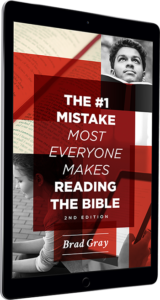Episode 036 – Psalm 23 Pt 3: Still Waters of Rest
Key Passage(s): Psalm 23:2
Were you aware that sheep won’t drink water if it’s moving? It freaks them out. Thus, when David mentions “still waters” in Psalm 23, it’s intentional. Water is life. And sheep need to drink. But as David is doing throughout the psalm, this isn’t about getting water; it’s about getting something much deeper – something we desperately long for and need in the midst of the hecticness of life. If you ever feel unsettled in all that needs to be done, this is a teaching you definitely need to hear.
Discussion Questions
- What’s your biggest takeaway from the teaching?
- Where are you feeling the most unsettled in the busyness of life right now?
- When it was said in the teaching, “We’re not always supposed to be moving. We’re not always supposed to be doing,” what came to mind for you?
- Do you have anchoring points of rest in the midst of your day where you find that deep, soul-satisfying rest? If so, what are those anchoring points for you?
- If you don’t have those moments, do you actually believe you need them? Why or why not?
- If you’re not experiencing these moments of rest and you long to, what needs to happen to make this a part of your life?
- How will you begin implementing your desired changes this week?
For Further Study
- Episode 018 – Build Your Central Park addresses the main subject of this episode as well.
- The Good Shepherd: A Thousand-Year Journey from Psalm 23 to the New Testament by Kenneth E. Bailey
- Psalm 23: A Photo Commentary by Steven D. Anderson and Todd Bolen
- Psalm 23: Photo Companion to the Bible (pictures) by Todd Bolen (BiblePlaces.com)
- While Shepherds Watch Their Flocks by Timothy Laniak
- Becoming a Judean Shepherd by Doug Greenwold
As an Amazon Associate, we earn from qualifying purchases (at no extra charge to you).





What‘s the Hebrew for The Lord is ……..
YEHOVAH,
YEHOVAH EOHIM or????
in Psalm 23?
Nope. Just YHWH (LORD).
Would love to hear a teaching on teaching our children. What can we do to really develop the context of the Bible for them? If we could teach context when we teach the story the first time… perhaps they wouldn’t struggle as we do with all the incorrect understanding of so many stories/passages. I hope that someday you consider writing children’s Bible story books to help kids develop their inner Hebrew/Israelite. But would love a teaching on how you approach this, what resources you use.
JB, I’ll put that on the list of potential things to tackle in the future. In the meantime, I’d like to address this in the final episode on Psalm 23. So thank you for posting this.
JB’s comment about teaching children to read/understand text in its historical context is an important one. My colleague Sam Wineburg at Stanford has written and studied ‘reading in context’ issues related to history. His book by TC press might be a good starting point for your list of ‘things to tackle in the future’: https://www.tcpress.com/reading-like-a-historian-9780807754030
Thanks for sharing this, Doug.
This teaching is exactly what I️ need right now. It is so easy to get caught up in the busyness of the world around us. And, taking the time for those anchoring moments of rest during the day is so important. So, once again, your teaching really resonated with me today. I️ need that tranquility that grounds me. Thank you so much for this series on Psalm 23.
Audrey
Yep, we all need it! Thank you for sharing this, Audrey.
Brad,
I’m enjoying this series. I like how you’re opening my mind to the exact meaning of Psalm 23. Amazing. Btw, still working on creating my central park, as well as, still waters. I’m learning to be still and listen to God.
We’re all on a journey, Tru 🙂 Glad you’re moving forward in yours in these areas!
Your Series on Psalm 23 is a ‘Central Park’ for me. Thanks for creating it Brad …
You’re welcome, Doug.
In Part 3 I’m still striving to interpret the Biblical text like you do: in its original context.
The question I’ve been grappling with this week has been:
Given the Negev desert’s 11th-century terrain, what were the full set of skills a shepherd of that time used to locate and create ‘still waters’ for his sheep? (What were the types of ‘still water’ techniques he used?)
I searched the resources listed under ‘Further Study’, without success.
Any other resources?
The shepherds knew the land like the back of their hand. Over time, they knew where to find water, where it would likely flood, etc. As long as they knew where to find the water, they could then adapt as necessary so the sheep could drink the water – meaning, cut a small channel if the water was moving too quick in order to get it to “calm” down, or put into a trough (from a well) where the sheep to reach it, etc.
Interesting: ‘channel cutting’ & ‘trough filling’ as skills for stilling water. Part 9 of this series spells out what these skills can look like when practiced in our 21st-century lives. Thank you …
I would love to see a series on the book of Revelation.